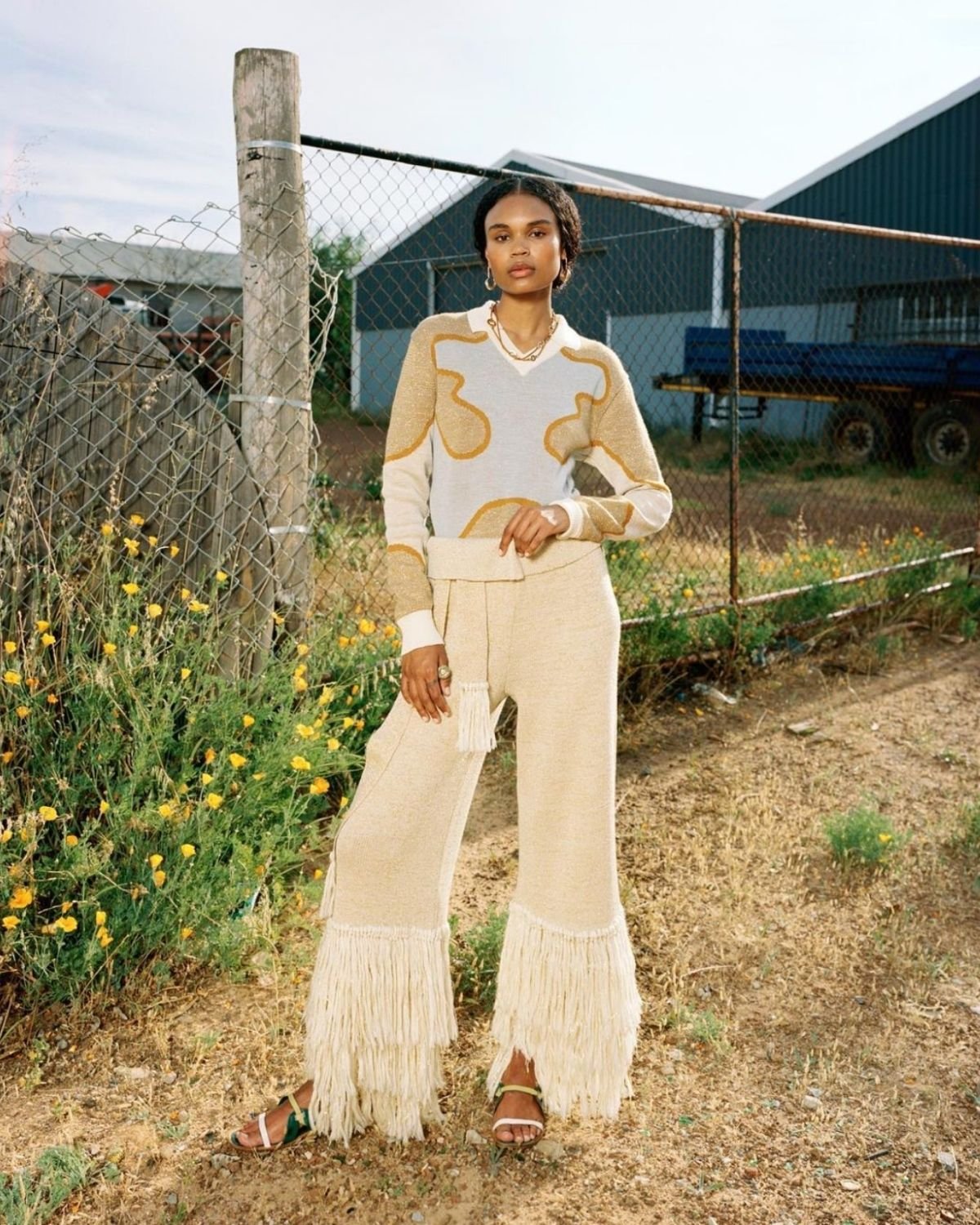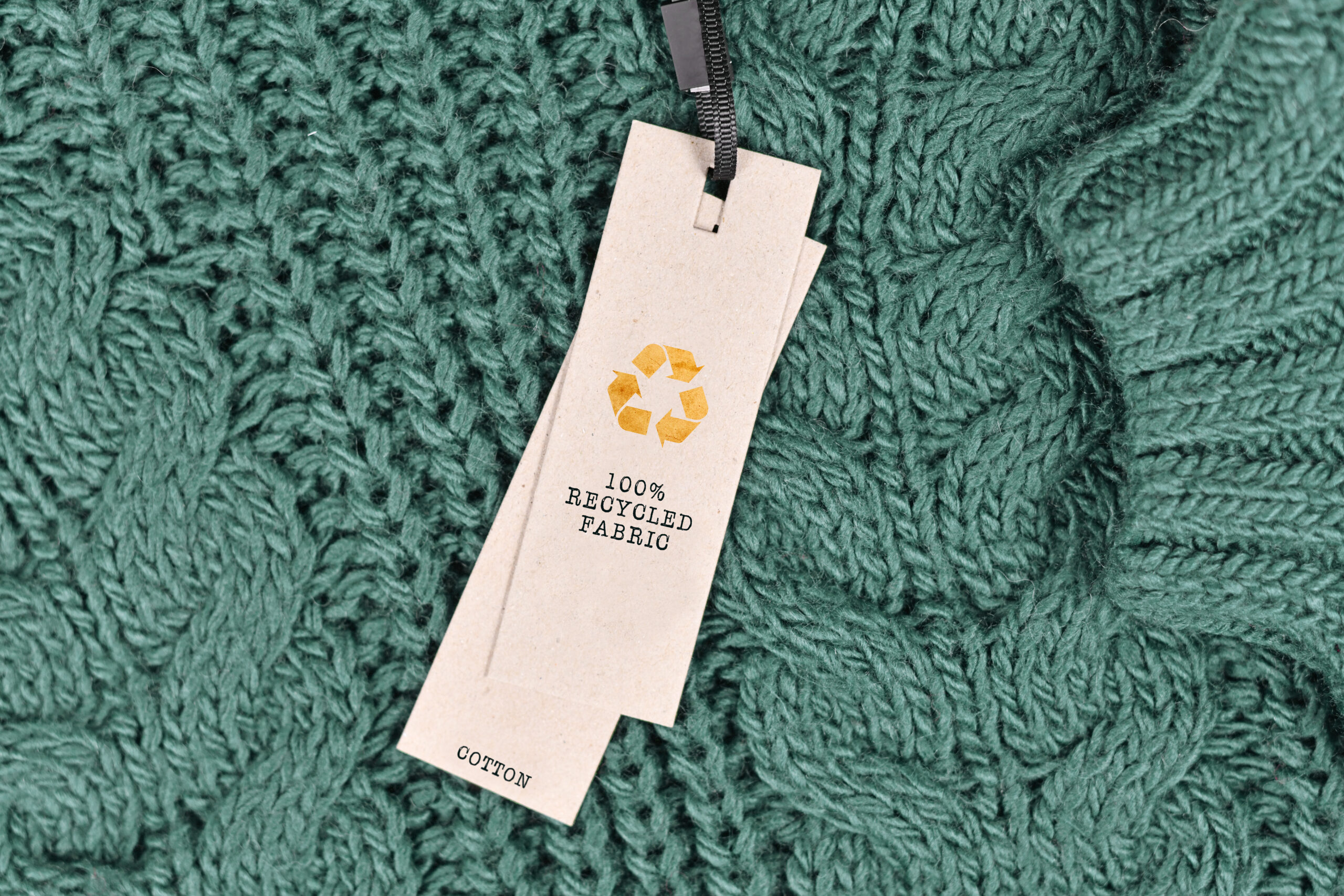Keep Ahead of the Contour by Checking Out Ingenious Style Fads
In an industry as dynamic as fashion, staying ahead includes greater than just following existing fads-- it requires an exploration of development. Smart textiles, for example, are changing garments right into functional masterpieces, while 3D printing is changing layout processes with its customizable, waste-reducing capabilities. As sustainability comes to be a foundation, advancements like environment-friendly materials and round style practices are improving ecological responsibility - Cape Town Sustainable Fashion. Furthermore, the merging of innovation and fashion proclaims a new era of customer interaction. How, after that, can these emerging trends redefine the future of style, and what implications do they hold for brand names seeking to grow in this progressing landscape?

Welcoming Smart Textiles
In the last few years, the garment industry has experienced a transformative change with the assimilation of smart textiles, an innovative technology that mixes technology with fabric. This development represents not only a combination of looks and capability yet additionally a significant leap towards sustainability and personalization in style. Smart textiles, also called e-textiles, embed advanced electronics such as sensing units and conductive strings within the textile, making it possible for garments to connect with the atmosphere or the wearer.
These fabrics are made to check physical specifications, such as heart rate or body temperature, providing real-time health analytics. Past health and wellness applications, wise fabrics are additionally being used for adaptive clothing, which can transform shade or pattern in action to environmental stimuli, hence using a dynamic fashion experience.
Moreover, the growth of energy-harvesting fabrics that generate power from movement or sunshine is leading the way for self-dependent wearable innovation. This development is appealing to eco mindful consumers and developers intending to reduce the eco-friendly impact of fashion. As r & d in this area development, smart fabrics are expected to become significantly prevalent, improving the landscape of contemporary style with their multifunctional abilities.
The Rise of 3D Printing
Revolutionizing the production landscape, 3D printing has arised as a game-changer in the fashion business. This innovative technology has actually enabled developers to push the limits of creativity, creating intricate and tailored garments that were previously unbelievable. By leveraging digital layout and additive manufacturing, 3D printing promotes the creation of intricate geometries and patterns, allowing developers to try out brand-new textures and frameworks.
A significant benefit of 3D printing in fashion is its ability to create on-demand, minimizing waste and minimizing supply needs. This effectiveness not just optimizes manufacturing procedures however also permits quick prototyping, enabling designers to bring their visions to life in a much shorter duration. Furthermore, 3D printing supports modification somewhat unmatched by conventional techniques, supplying special layouts and personalized fits tailored to private customer choices.
The surge of 3D printing has actually also democratized fashion, making it accessible to emerging designers who can now produce high-grade items without significant economic investment in traditional manufacturing infrastructure. As technology continues to advance, the apparel industry is positioned to harness the complete possibility of 3D printing, discovering brand-new materials and strategies that will certainly redefine how fashion is conceived and created.
Lasting Style Technologies
As the garment industry grapples with journalism requirement for environmental obligation, lasting fashion developments have arised at the leading edge of transformative modification. The growing recognition of eco-friendly effect has sustained a change towards even more eco-conscious methods and materials. Brands and developers are currently prioritizing sustainability, including techniques that reduce waste and reduce carbon impacts.
One significant growth is the rise of round style, which highlights recycling and upcycling to expand the lifecycle of garments. This method not just reduces waste however additionally motivates customers to adopt a much more conscious approach to garments intake.
Another innovation depends on the adoption of cutting-edge dyeing methods that make use of waterless procedures or natural dyes, thus lowering the large quantities of water and chemicals commonly used in textile dyeing. Moreover, advancements in biotechnology have caused the production of lab-grown natural leather and fabrics, providing environmentally friendly and cruelty-free alternatives to traditional products. Via these introducing initiatives, the apparel industry is making meaningful strides towards a more sustainable future.

Tech-Integrated Clothing
Tech-integrated apparel represents a cutting-edge blend of style and technology, improving exactly how people engage with their garments. This innovative domain is marked by the incorporation of wise fabrics and ingrained digital parts, improving both functionality and visual charm. From fitness trackers installed in sportswear to warmed jackets controlled by means of smartphone applications, tech-integrated clothing offers customers unprecedented comfort and adaptability.
Pioneering brand names are driving this fad, concentrating on developing garments that reply to ecological stimuli or individual commands. For instance, some garments can change color or pattern in response to temperature level changes, while others integrate biometric sensors to keep track of health and wellness metrics like heart rate or stress degrees. The smooth combination of innovation into fabrics additionally prolongs to environmental sustainability, with efforts to create self-cleaning textiles or garments that get used to weather, thus minimizing the demand for several layers.
Furthermore, the advent of wearable modern technology is not simply limited to clothing yet prolongs to accessories like watches and glasses, additional broadening the extent of tech-integrated fashion. As the industry proceeds to innovate, the possibility for visit this site personalization and personalization in garments grows, offering customers distinct, tech-enhanced style experiences that accommodate their specific requirements and preferences.
Future of Virtual Style
In the last few years, the future of online fashion has actually emerged as a transformative pressure within the industry, leveraging improvements in digital modern technology to redefine how style is created, experienced, and eaten. By integrating increased reality (AR), online reality (VR), and 3D layout tools, developers can now craft interactive and immersive experiences that go beyond conventional style boundaries. Online style allows for the production of garments that exist solely in digital settings, providing limitless possibilities for advancement without the constraints of physical production.
This digital change not just presents chances for imaginative expression but likewise addresses sustainability problems inherent in standard style techniques. Cape Town check here Sustainable Fashion. By eliminating the requirement for physical sources, digital fashion decreases waste and lessens carbon impacts. In addition, the rise of online fashion lines up with the raising customer need for individualized and special experiences, as digital garments can be tailored and tailored to private choices easily

Verdict
The apparel industry's future hinge on the integration of cutting-edge innovations and sustainable methods - Cape Town Sustainable Fashion. Smart textiles and tech-integrated garments are enhancing capability, while 3D printing provides possibilities for personalization and waste decrease. Sustainable style, through environment-friendly products and circular techniques, demonstrates a commitment to ecological stewardship. Furthermore, online style is poised to redefine consumer communications. Adapting to these patterns is crucial for official website brands seeking to continue to be pertinent and affordable in this rapidly progressing landscape.
In current years, the style industry has seen a transformative change with the assimilation of clever fabrics, an advanced advancement that mixes modern technology with textile.As the style industry grapples with the pressing need for environmental responsibility, sustainable fashion advancements have actually arised at the leading edge of transformative modification.In current years, the future of online style has emerged as a transformative force within the market, leveraging developments in digital innovation to redefine exactly how fashion is created, experienced, and consumed. The rise of virtual style straightens with the raising customer need for individualized and special experiences, as online garments can be personalized and tailored to individual preferences with convenience.
The style sector's future lies in the assimilation of lasting techniques and ingenious innovations.